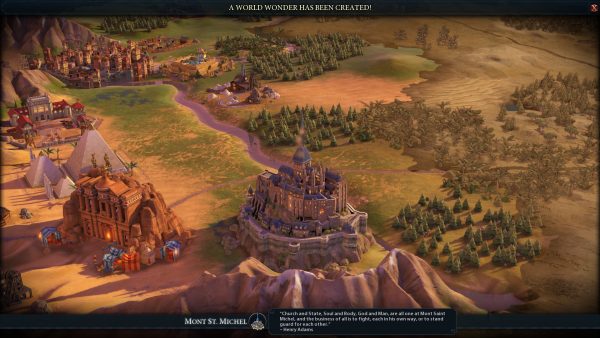
Sleepless nights are here again with the latest installment of Sid Meier’s strategy game franchise, Civilization VI (Civ VI).
Although Civ VI looks similar to previous titles in the franchise with the hexagonal tiled layout across the map, Civ VI has a lot of strategy and gameplay to offer right off the bat
There is no need to wait for expansion packs to beef up the content.In the previous Civ game, Trading and Espionage were only included in the expansions but in Civ VI, they are available once you have researched these abilities.
Even though there’s a bit of a learning curve, I found Civ VI much easier to pick up even than the previous titles. There’s a helpful advisor who will give you advice and recommendations throughout the game.
Plus, the Civilopedia has a wealth of information on the workings of the game. One complaint I have is that the textured background of the Civilopedia makes the words quite hard to read.
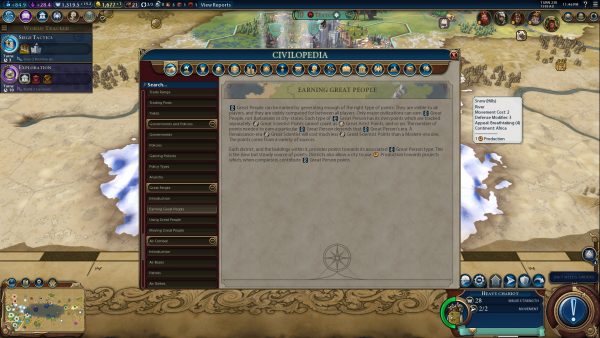
Location, location, location
Instead of cramming all the wonders and buildings in your city centre, Civ VI now has specialised Districts and their associated upgrades that will occupy their own tiles.
This makes the location where you place your cities or its expansions more important strategically than ever. In other words, you go beyond just selecting the tiles with harvestable resources.
You need to decide where to place your districts to reap the most bonuses, and sometimes this means sacrificing the existing resources on the tile.
For example, Campus districts gain extra Research points if they are built next to mountains. And if you are planning to build a military encampment, you should place it further from your city centre and nearer the border as new units will spawn there once ready, so they can help defend your city.
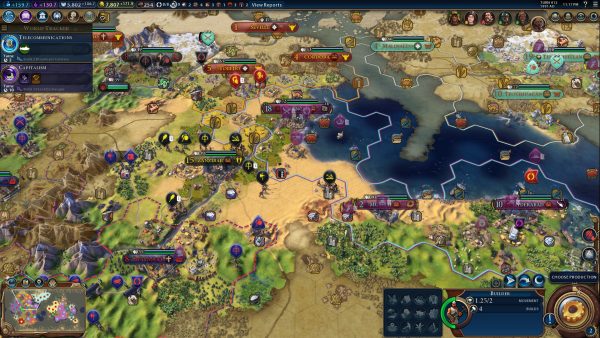
Certain Wonders are also dependent on the terrain that your tiles are on. For instance, Pyramids need to be built on a desert, so if your entire kingdom does not have a single desert tile, this Wonder is out of your reach.
Compared to earlier Civilization games, I feel now that I have a deliberate sense of purpose in expansion and not just to cover as much of the map as possible.
Unlike Civ V, roads are now automatically built so you don’t have the problem of closing yourself in, nor do you have to remove the improvements you had placed on your tiles in order to build a road.
Another improvement I really appreciate is that support units such as siege weapons and medics can occupy the same tile as your military unit, so you can surround an enemy city more tightly with your troops.
Two trees are better than one
The Tech tree for Civ VI is now separated into two – Civics and Technology.
Civic advancements include development in government styles, social policies and the arts, and are attained by accumulating Culture points.
Technology, obviously, is for scientific and technological endeavours such as irrigation, gunpowder and flight, and these require Research points.
Again, your choice of government for your civilisation also affects the perks you get – some offer you more slots for military, economic or diplomatic “cards”. Some even offer more wildcard slots which can really help if you are trying to max out on certain perks.
Both Civics and Research attainments can be boosted – which means the number of turns required is reduced – if you have accomplished certain tasks. For instance, if you encountered three other City states, you will get a boost for the Political Philosophy civic.
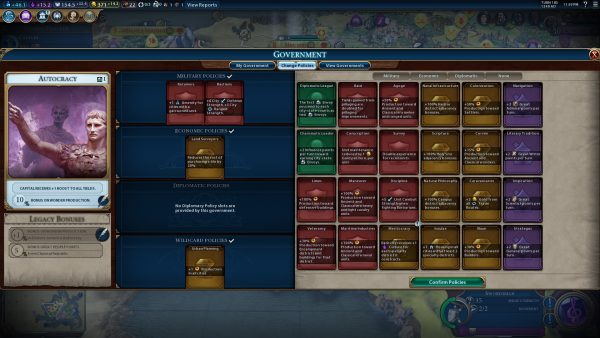
Plan to win or prepare to fail
Like Civ V, there are five different ways to win in Civ VI, and not all of them involve wars. This will please the pacifists among us.
There’s a new type of victory – Religious victory – which I thought was a lot more fun than the Diplomacy victory in Civ V. Here are the five victories you can strive for in Civ VI:
Domination victory is the most straightforward one – build a strong military and defeat everyone else on the map and take over their capitals!
Culture victory is similar to what our Singapore Tourism Board tries to achieve – attract visiting tourists. This can be achieved by developing great works of art and wonders (not a large Ferris wheel, mind you.)
Religious victory – found a religion and spread the religion across all civilizations with Missionaries and Apostles until it is the most dominant religion on the map. It can be something fun to customise, for me, I chose a Uniquely Singaporean one – the Chilli Crab religion.
Science victory – this is achieved when you create something related to space-age technologies – blast off a satellite, put a colony on Mars or someone on the Moon.
Time or Score victory – the “long service award”. Your total achievements until year 2080 or at the end of 500 turns and the one with the highest score wins. This is actually a slow, uncertain and least satisfying way to win.

Civ VI makes every decision important in your strategy, even in the very first decision you have to make in choosing which civilisation to play.
There’s no point picking Germany which gets military bonuses if you intend to achieve a Religious victory – you will be better off with India or Arabia. So plan your victory and check the bonuses for each civilisation before you start.
You can choose to play the leader of 20 different civilisations (although there are two different leaders for Greece – Gorgo and Pericles), each with their own unique strengths and weaknesses.
Some also have a unique unit, like the elephant warriors for Indians, or unique tile improvements, like a Sphinx for Egyptians. With so many civilisations and victories to choose from, Civ VI offers almost endless replayability.
Great People, great responsibilities
Civ VI features nine different types of Great People, and these are Prophets, Merchants, Generals, Admirals, Writers, Musicians, Artists, Engineers, Scientists, all with different abilities.
Although some have passive abilities, like Generals and Admirals who have certain auras that affect the troops around them, their most important benefits are the activations that provide you with a one-time bonus, such as a unit, a work of art or achieving an important milestone in your tech tree.
If you are aiming for a Religious victory, you will need a Great Prophet in order to found a religion. Since there are limited Great Prophets available in each map, you will have to start working on getting Great Prophet points right from the get-go.
If you have enough money or Faith, you can also pay Patronage to get a Great Prophet but do it fast as there are never enough prophets to go around.
I managed to claim a Great Prophet to found my Uniquely Singaporean Chilli Crab religion by vying for Great People and Faith points in my government policies, and building plenty of holy sites, which left me with a skeletal military force.
This means that switching tactics or trying for a different victory midway can be quite difficult.
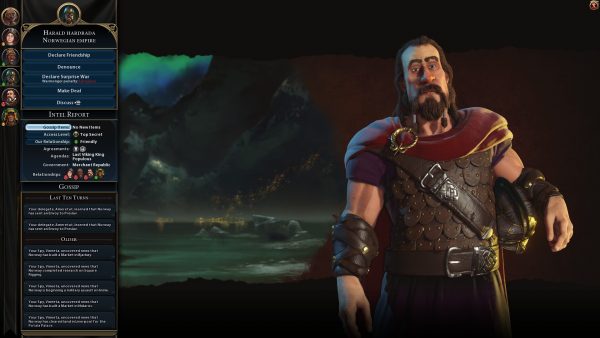
Builders and other cities
In Civ VI, your civilian units now have limited uses, so you can use a builder unit three times or missionaries twice before they are exhausted (more if you have certain policies that give you bonuses).
Settlers, of course, are single use only. This creates another level of strategising as you need to consider where to send or create your units – to send a Builder with only one charge left across the ocean is a waste of time when you can create a full party and send four.
Civ VI preserves the gameplay mechanic of independent city-states – these are not part of a greater civilization but they can be influenced to offer benefits to your civilisation by sending envoys or completing certain tasks.
The more envoys you send, the higher your influence rank with them, and when you become a city-state’s Suzerain, you can view their surrounding tiles, and even loan their military for a fee.
But be aware that this can also be a contentious issue with the other civilisations on your map who are also vying for relationships with the city-states or who are against such alliances.
Sound me out
The soundtrack for Civ VI is worthy of an honourable mention, with simple instrumentation in the early epochs and full scale orchestration in the later eras.
Another audio treat is hearing Sean Bean (Boromir from the Lord of the Rings movies and Ned Stark of Game of Thrones fame) narrate the advancements in Civics and Research with humourous, timeless quotes, including those from Scott Adams, creator of Dilbert.
The voice acting also sounds authentic in the native languages, at least for those that I’m familiar with, like Mandarin for China’s Qin Shi Huang and Japan’s Hojo Tokimune.
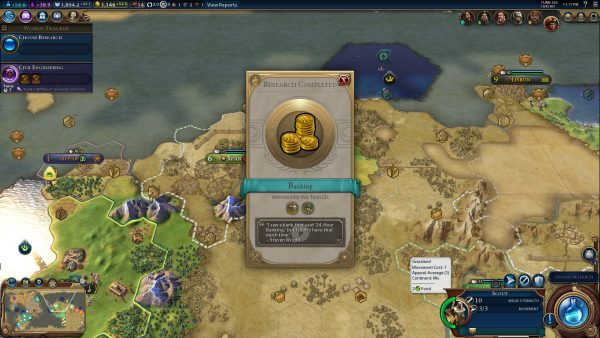
Get your civilisation on!
Civ VI is available on Steam as well as retailers at S$74.90. You can also buy the Digital Deluxe edition for S$99.90, which includes the 25th Anniversary soundtrack and access to four DLCs.
Or, if you are a true Civ fan, you might go for the limited 25th Anniversary edition (S$129.90), which includes a coin set as well as a “Civilization Through the Years” hardcover art book.
Don’t fret if you missed out on the pre-order version of Civ VI that included the Aztec civilisation – the Aztecs will be available to all in Jan 2017.
Just recently, the Fall 2016 update for Civ VI has also been optimised for DirectX 12 to benefit those playing on Windows 10.
The developers have also added a new multiplayer scenario “Cavalry and Cannonades,” and two new map types, “Four-Leaf Clover” and “Six-Armed Snowflake” to settle on. More reason to start yet another civilisation!
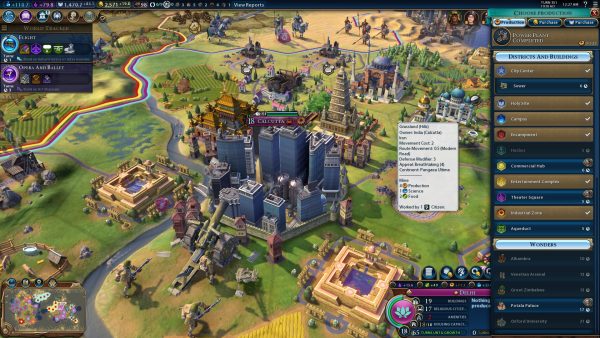
TL;DR
For those who are keen to try Civilization games, I strongly recommend starting with Civ VI as this is a much more newbie-friendly game.
For those who love to stretch their strategic muscles, you will not be disappointed in Civ VI and you will always want to play “just one more turn”.
With almost endless replayability with the different victories and civilisations to experiment with, and much more rewarding victories, Civ VI is the most addictive Civilization game to date. I’ve spend over 60 hours on it and I still want more.






